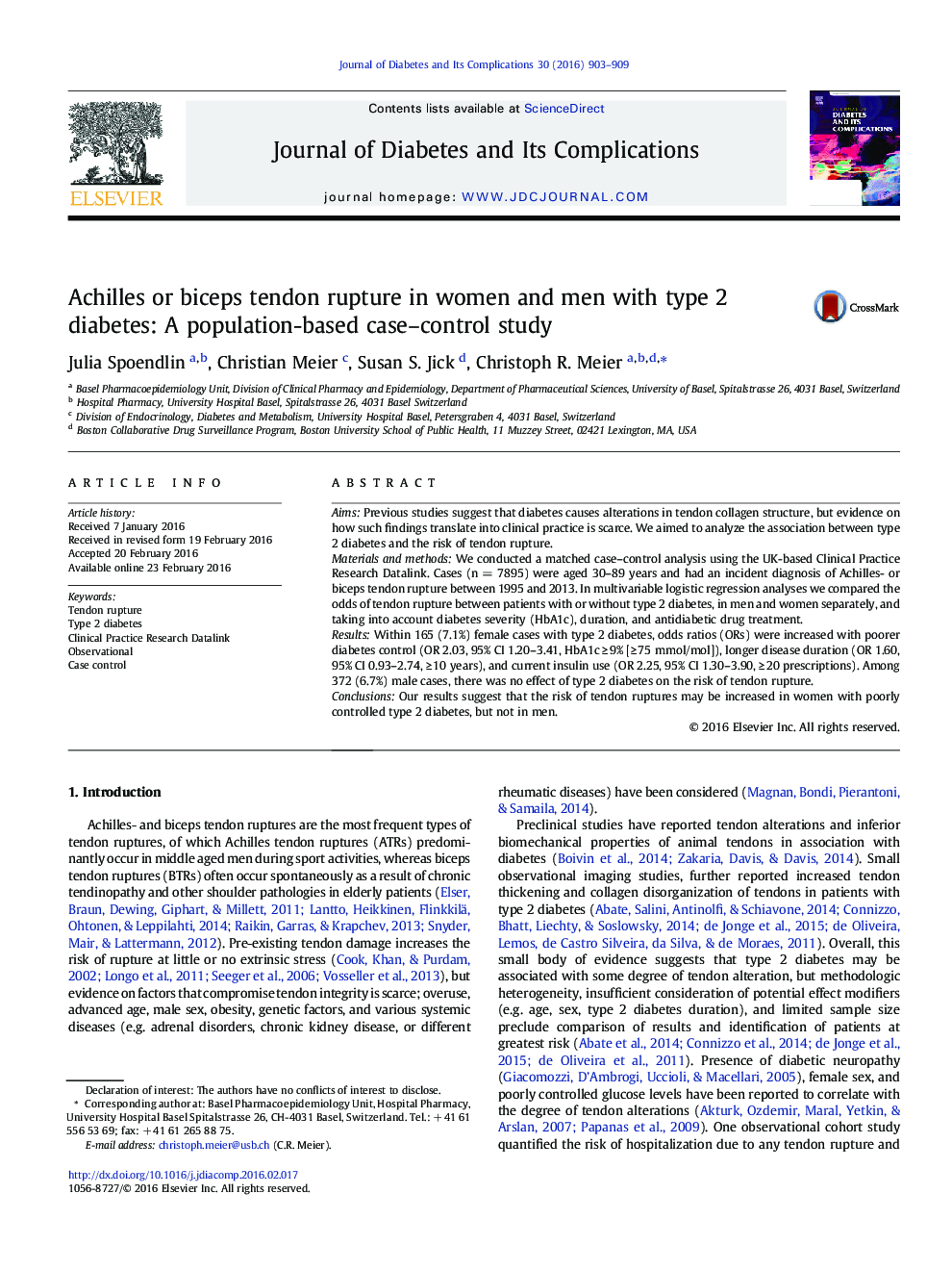| Article ID | Journal | Published Year | Pages | File Type |
|---|---|---|---|---|
| 2804097 | Journal of Diabetes and its Complications | 2016 | 7 Pages |
AimsPrevious studies suggest that diabetes causes alterations in tendon collagen structure, but evidence on how such findings translate into clinical practice is scarce. We aimed to analyze the association between type 2 diabetes and the risk of tendon rupture.Materials and methodsWe conducted a matched case–control analysis using the UK-based Clinical Practice Research Datalink. Cases (n = 7895) were aged 30–89 years and had an incident diagnosis of Achilles- or biceps tendon rupture between 1995 and 2013. In multivariable logistic regression analyses we compared the odds of tendon rupture between patients with or without type 2 diabetes, in men and women separately, and taking into account diabetes severity (HbA1c), duration, and antidiabetic drug treatment.ResultsWithin 165 (7.1%) female cases with type 2 diabetes, odds ratios (ORs) were increased with poorer diabetes control (OR 2.03, 95% CI 1.20–3.41, HbA1c ≥ 9% [≥ 75 mmol/mol]), longer disease duration (OR 1.60, 95% CI 0.93–2.74, ≥ 10 years), and current insulin use (OR 2.25, 95% CI 1.30–3.90, ≥ 20 prescriptions). Among 372 (6.7%) male cases, there was no effect of type 2 diabetes on the risk of tendon rupture.ConclusionsOur results suggest that the risk of tendon ruptures may be increased in women with poorly controlled type 2 diabetes, but not in men.
